The 5 Best Books to Learn JavaScript
Why do most people who make an effort to learn to code fail? The answer is in the question: because they were trying to learn how to code.
Think about learning languages. Are you more likely to succeed if you decided to learn French just because you always wanted to learn another language or because you are moving to France for three months for work? Real projects … real "doing" approaches are how people learn. That's what you should be looking for in a book. Something that is going to help you learn JavaScript without learning JavaScript.
I've taught hundreds of students to code, and the following are the five JavaScript books I recommend.
A Smarter Way to Learn JavaScript: The new approach that uses technology to cut your effort in half, by Mark Myers
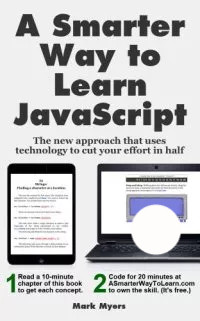
This is my favorite JavaScript learning book by far. Why? It is 100% project based. It takes a very, very basic approach, assuming nothing about your knowledge base, but still gets as far as constructor functions. Each chapter is broken up into 2-3 pages of practical, easy to understand examples. This makes it very approachable and sets frequent breakpoints if you need to take a rest. If you want to learn JavaScript, buy this book and do every chapter.
JavaScript and JQuery: Interactive Front-End Web Development, by Jon Duckett
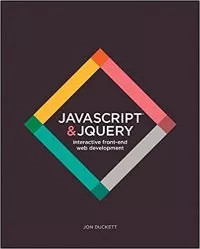
You will learn some JavaScript and jQuery from this because it modernizes the way coding is taught … it looks good. Finally, someone figured that out. Nothing is more miserable, intimidating, and discouraging for a new coder than picking up a 1,200-page book that has nothing but typewriter looking text inside it. The presentation is not just "pretty," it’s also well organized. It layers well and builds up to the next concepts in a logical way. The transition to jQuery is natural and well done.
Eloquent JavaScript: A Modern Introduction to Programming, by Marijn Haverbeke
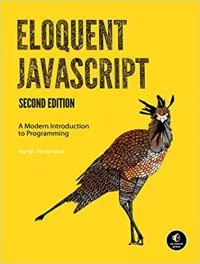
This is not really a JavaScript book. As the title suggests, it is an introduction to programming and uses JavaScript. It is very good for this reason. It is very common to have a computer science student who does not know how to code JavaScript. It is very common to find a developer who can write JavaScript but knows nothing about computer science. This will help create a good computer science foundation (its primary purpose) through learning JavaScript. It is laid back but does suffer from the problem I mentioned above: it is going to require you to want to learn how to program, which will require tenacity and motivation beyond an exclusively project-based approach.
JavaScript: The Definitive Guide, by David Flanagan
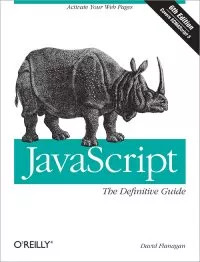
If you get into coding books you will start noticing this color scheme cover. O’Reilly puts out some great stuff (with the occasional miss) and this book is an excellent reference guide for people who are past the basics. I say reference because I couldn’t go through this book cover to cover like I could “A Smarter Way to Learn JavaScript.” You will get more information than you need if you are just after learning the language. However, if you are looking for a tool that will remind you how closures work, prototyping, graphics, etc., this is an excellent resource.
Learn JavaScript VISUALLY, by Ivelin Demirov
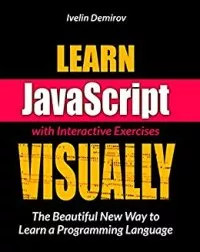
This runs in a similar vein to Jon Duckett’s book above. It takes a very visual (hence the name) guide to learning the language. It is for absolute beginners and therefore isn’t terribly deep—and it's also quite short. Recommended for true newbies only.
Learning in Person at a Developer Bootcamp
There's a lot of value in learning from a book, especially if you're strapped for time or need to brush up on a specific topic. Or you can learn online—I've got some courses on Udemy myself, and we recommend some books and free online resources to help you get started with learning to program.
But in my opinion, learning new skills in person, in a room of fellow learners, offer some distinct advantages over learning from a book or video. If you tackle a new skill set in a classroom setting, you can learn in person from a professional who's been in the trenches of development, using those skills to build applications for clients or other audiences.
You can also learn a lot from your classmates, who are working on the same problems you are. And at DigitalCrafts, you'll find the career guidance you need, including resume workshops and job placement support.
After you've read one of these books, get ready to take the next step in your career as a new developer and learn with our expert instructors. Download our course curriculum for more information about our full-stack web development bootcamps.
Download Catalog
